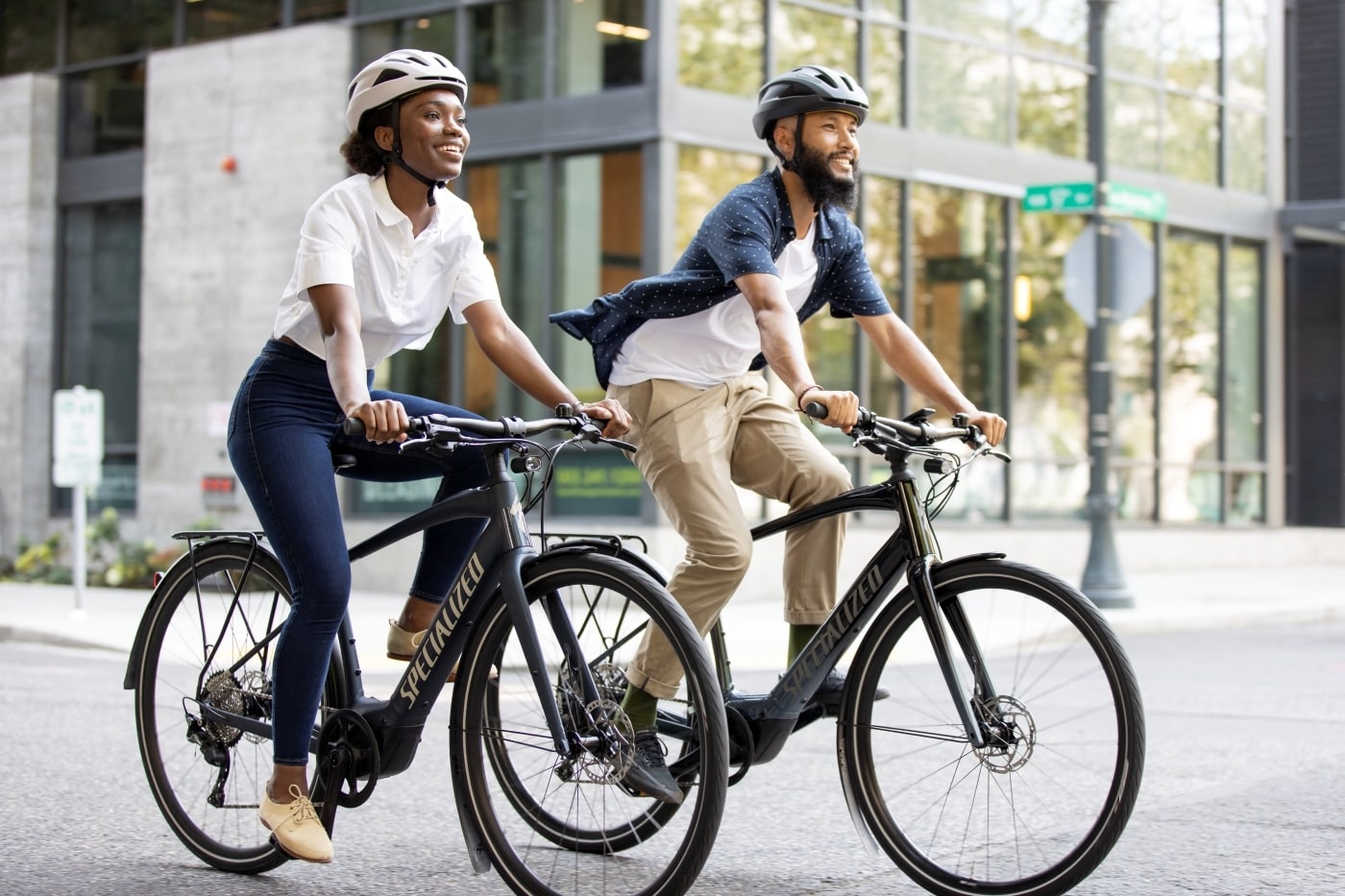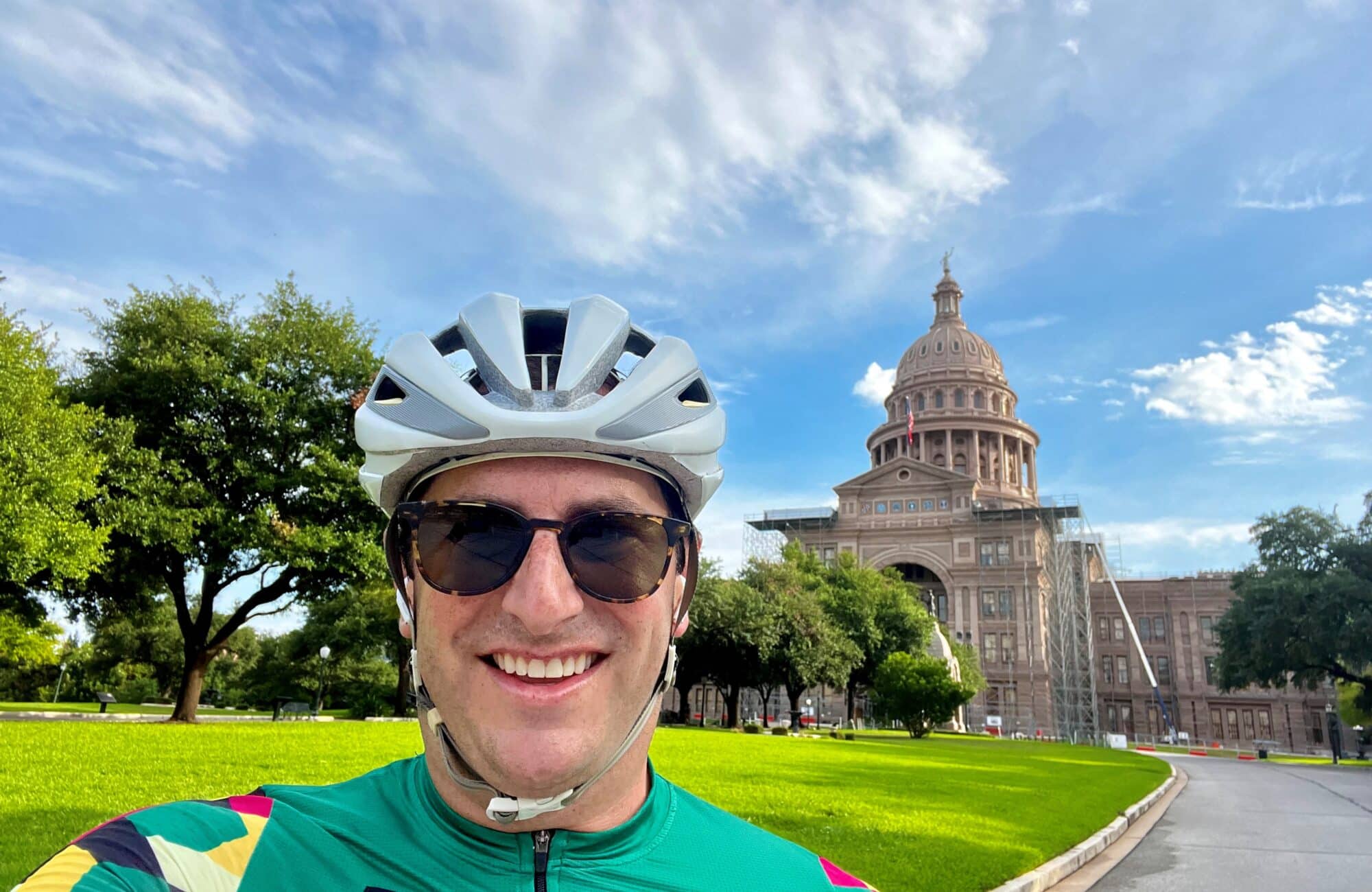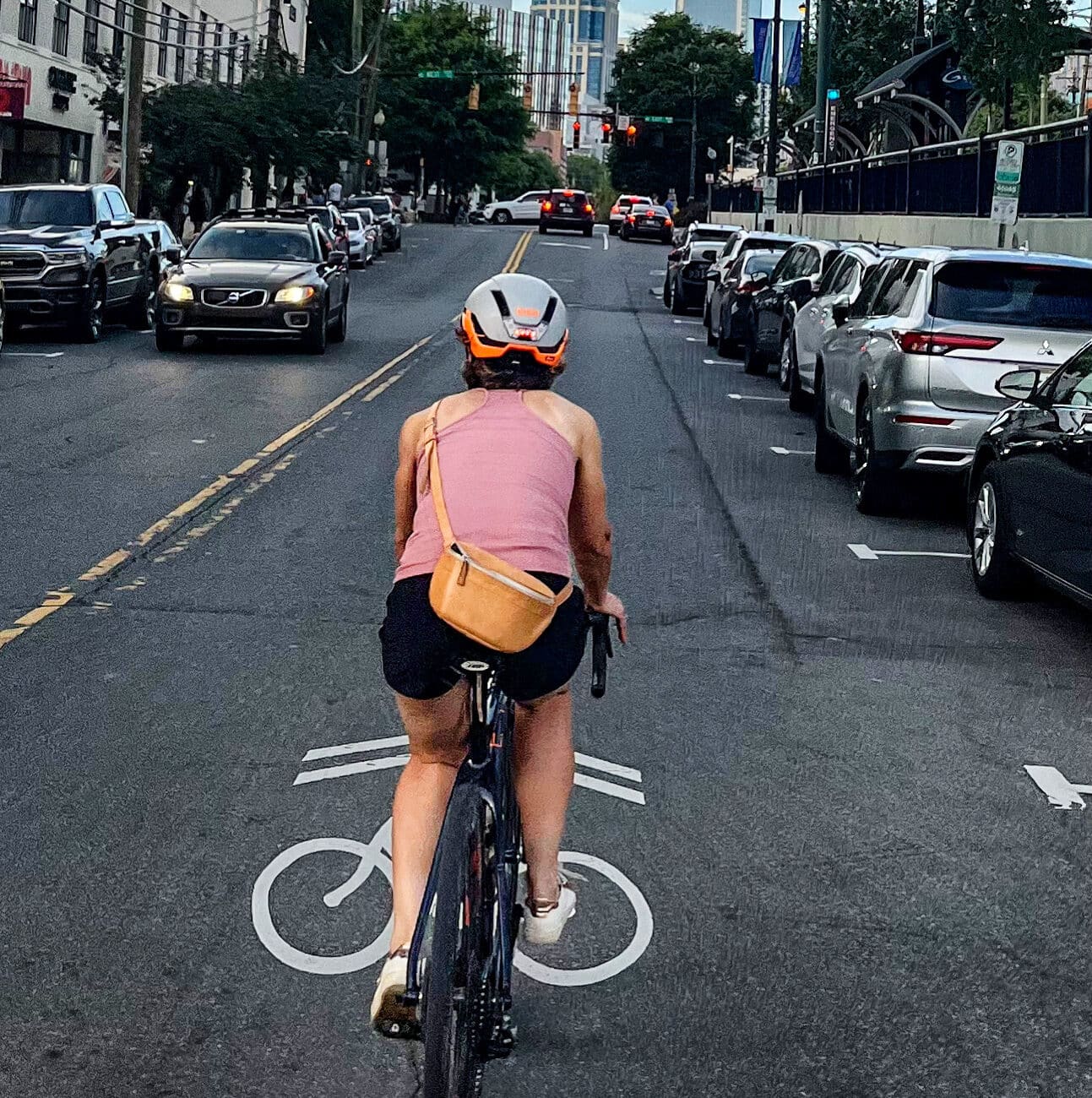ABOLISH CONTRIBUTORY NEGLIGENCE!
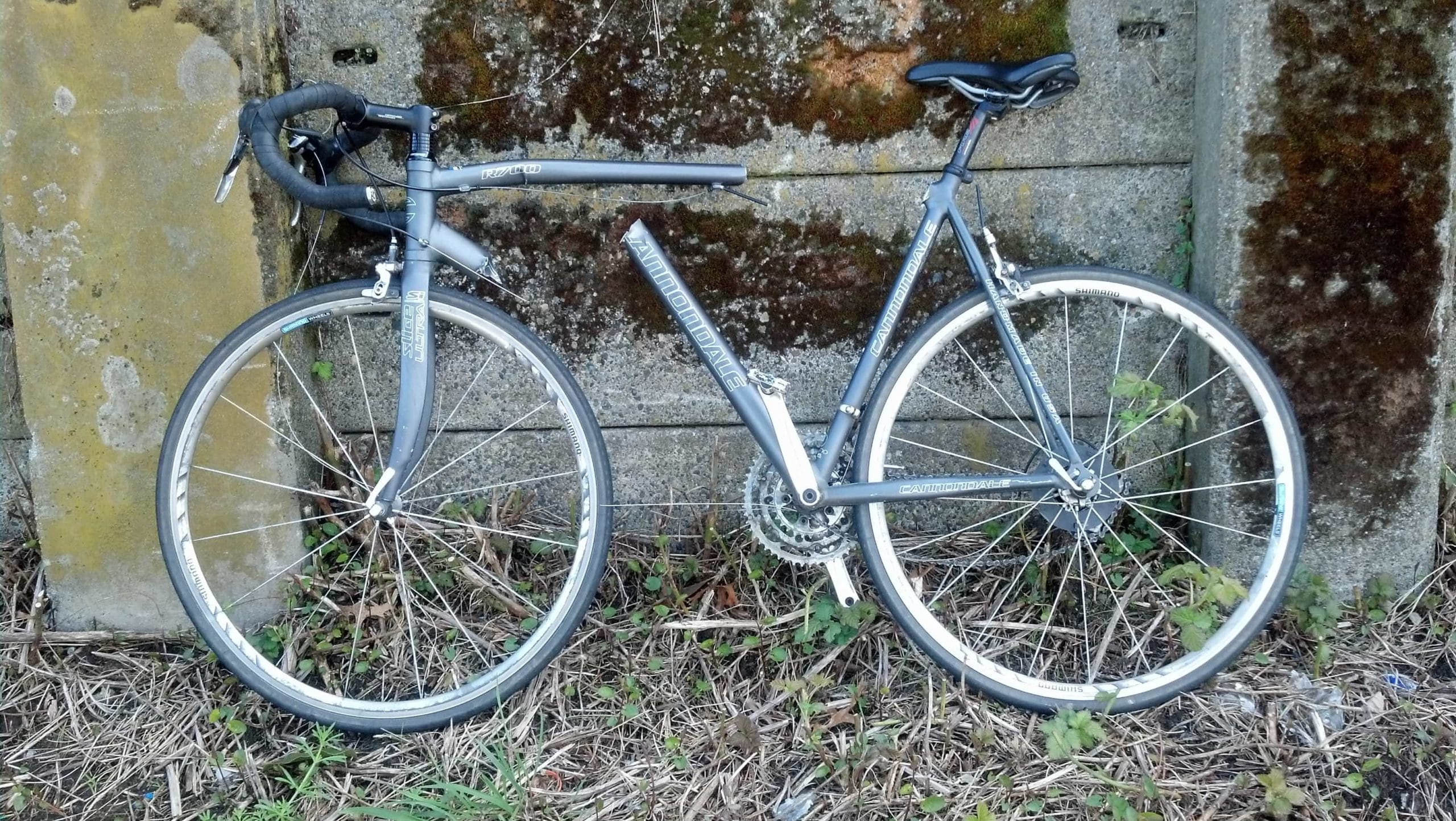
The antiquated law of Contributory Negligence is particularly horrible for North Carolina cyclists, but cyclists NOW have a say in abolishing it.
If you’ve met me, you’ve heard talk about contributory negligence many times, including here and here and here. My vocation and my passion as a bike crash attorney is representing injured bicyclists and families of bicyclists who have been killed by careless drivers. Contributory negligence severely impairs the right of these individuals and bicyclists to be fairly compensated.
Now there is a bill pending in the North Carolina legislature that would even the playing field. Senate Bill 477, sponsored by Senators Danny Britt, Jim Perry, and Amy Galey, all Republican legislators, if passed into law, would change North Carolina to a comparative fault state.
Contributory Negligence Must Be Abolished
If you are reading this, you probably already agree that contributory negligence needs to end! In the past several days, Senators have received thousands of emails and calls from citizens (many of whom are bicyclists – thank you!!) supporting this law. But there will be questions and I want you to be ready for them. Those opposed to the change are organizing to defeat the bill and we will start to hear arguments about it. So let me explain this law in a little more detail and hopefully dispel some of the myths that insurance companies have been spreading and will continue to spread.
What is contributory negligence?
Contributory negligence, also known as “contrib,” “pure contributory negligence” and “the 1% rule” is a system by which an injured person who is even 1% at fault for her injuries is entitled to NO damages. Very simply, if someone runs a red light and injures or kills the person with the green light, if the green light person could have seen and avoided a crash, she would not be compensated even one penny for her injuries, even if she ends up in a wheelchair or is otherwise severely injured.
Why is pure Contributory Negligence especially bad for bicyclists?
If you’ve ever had a legal case as a bicyclist, you know the answer to this question. There are hundreds of things the average person misunderstands about bicycling and often we can’t seem to do anything right. You shouldn’t be riding on the road, but you also shouldn’t be on the sidewalk or in a crosswalk.
You should be all the way to the right of the lane; no, you should be more to the middle or the left. Your light is too small. You aren’t wearing a reflective vest. Your clip in pedals are dangerous. These are arguments I hear every day. None are true but all can be effective if all the defense attorney or insurance has to prove is 1%.
How will the new law change things
The language of Senate Bill 477 (“Victims Fair Treatment Act”) might be a little confusing to non-lawyers because it refers to the change as contributory fault, which you may have heard referred to as “comparative fault.” “Comparative fault” is a good description because it compares the fault of the parties. First of all, if the injured person is more than 50% at fault, they still collect nothing for their damages. If they are less than 50% at fault, then they would be compensated for their injuries, less the amount of fault. If the injured person is 10% at fault, they get 90% of their damages; 40% at fault, they get 60% of their damages. You get the idea.
If this law passes, more careless drivers will be held accountable because insurance companies are not going fight cases where there is minimal fault. It’s not worth it. Why hire a lawyer and spend money to fight a case in order to save 1% or 10%? We will see more accountability and greater efficiency in the system.
Abolishing Contributory Negligence will NOT make insurance go up
First of all, insurance rates are regulated by the rate bureau and insurance companies cannot just raise them because they feel like it. More importantly, however, there is no evidence out there that changing to a comparative fault system will raise rates. Remember, North Carolina is one of only 4 states (also MD, VA and AL) in the entire country with this law. Of the comparative states, some have higher rates and some have lower.
There is no correlation to those states having comparative fault systems. Why is this the case? My guess, and it is only a guess, is that the processing of insurance claims in non-contributory negligence states is way more efficient. Fewer lawyers hired and fewer cases tried. Not that I want to legislate myself out of a job, but frankly, I would rather focus my efforts on cases where there are REAL legal issues and not disputes about whether a bicyclist should have been clipped into her pedals or not.
Injured people will still have to prove fault
Here’s an important point the naysayers keep missing. If SB 477 passes and becomes law, an injured person will still first have to prove that the person she is suing is legally negligent, ie. that they did something that the law says is wrong. Nothing about that part will change at all.
If a person buys a product at a store, misuses it and is injured, this law will not change the burden that the injured person has to prove that the store is at fault. Unless the store knew the product was dangerous or altered the product in a dangerous way or had some duty to test the product to make sure it was safe, the store will not be negligent. If a pedestrian jumps into the street in front of a car and the driver is keeping a lookout and following the law but can’t avoid the crash, the pedestrian will not be able to prove that the driver is a fault. That is exactly what the law is now, already, and this bill would not change that.
Ending Contributory Negligence the law will NOT hurt small businesses
First of all, look at the other 46 states that have comparative fault laws. Some of these states even have pure comparative fault, where the injured person is entitled to damages even if more than 50% at fault. Even those states are not lacking in small businesses. Our contributory negligence law does not make North Carolina a haven for small businesses, it makes it a favorite state of major insurers and unscrupulous defense lawyers.
Someone posed a concern that a bike park, for example, would be at risk for people suing for injuries from crashing on obstacles that are supposed to be in the bike park. No, no, no. That is not how this works. Again, the injured person first has to prove that the bike park was negligent. That is the case now and the new law would not change that. Bike parks are supposed to have obstacles that people can crash on. That’s why there are warnings, and waivers. Are there bike parks and other athletic facilities in the 46 states with comparative fault? YES! Are they being hurt by stupid lawsuits? NO!
You don’t even get to the question of comparative fault if you can’t first prove negligence. That will not change, nor should it. Only people who do things wrong, and there are plenty of them out there on the highway texting and driving, should be sued. And they should be held accountable. Right now, in North Carolina, they are not being held accountable. We need to fix that and now is our time.
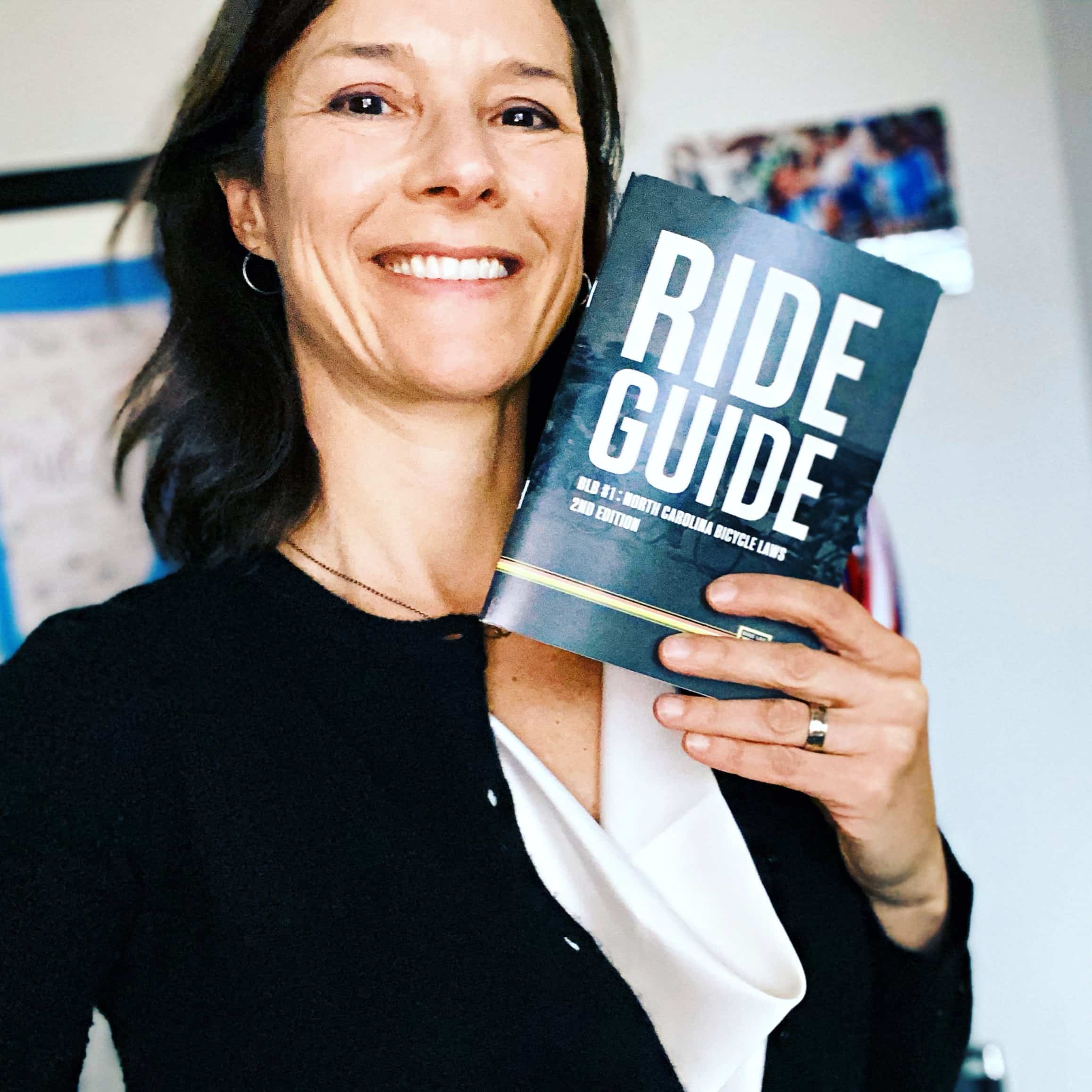
North Carolina lawyer and Bike Law founder, Ann Groninger, has advocated at the state level on behalf of bicyclists in North Carolina for over 15 years. Ann has offices in Charlotte and Durham and has helped bike accident clients in Asheville, Raleigh, Durham, Greenville, Wilmington, Fayetteville, and throughout the state. Read more about Ann on her bio page.
-
From Winner to Advocate: One Cyclist’s E-Bike Journey
Two years ago, on a family trip to Switzerland, my wife and I rented two electric-assisted mountain bikes, or e-MTBs, to tackle some steep trails near the Matterhorn. The salesperson said, in no uncertain terms, that the new e-MTBs were the way of the future, and we should give them a try. So we did. …
-
A Comprehensive Guide to E-Bikes in Louisiana: Laws, Tips, and Choosing the Best E-Bike
E-bikes are popping up everywhere. If you’re riding one in Louisiana or thinking about getting one, you may have questions about the laws, safety tips, and how to pick the right bike. That’s exactly what this post is here for! We’ll break down what you need to know about riding e-bikes in Louisiana, from legal…
-
The Lisa Torry Smith Act: A Win for Cycling Safety in Texas?
The Lisa Torry Smith Act brings important changes to Texas law. It makes clear that cyclists can ride in crosswalks and now requires drivers to stop and yield before entering a crosswalk with a pedestrian or cyclist. A gap in Texas law is allowing some drivers who hit people in crosswalks to get off scot-free,…
-
Far Right?! I was taking a LEFT!
Even Bike Law lawyers get hassled. Like many of us, riding for me is stress relief; it’s an escape from conflict and a busy schedule. Sometimes incidents on the road have the opposite effect and one incident this weekend made me question the state of humanity. It was not an unusual event, nor a particularly…
-
E-BIKES ARE LEGAL IN NC (WELL, SOME OF THEM)
Love them or hate them, e-bikes continue to rise in popularity. At the same time, lawmakers struggle to keep up with the developing technologies. Every week I get multiple inquiries from people trying to navigate North Carolina’s e-bike laws. If you’re confused, you’re not alone. We could easily fill a book with all the latest…
-
BIKES & CRIMINAL JUSTICE
Many of our cycling clients find themselves having to interact with the criminal justice system. Typically, it’s because the driver who hits them (or their family member) is charged with a crime or traffic offense. Occasionally bicyclists themselves are charged with traffic offenses! Every state’s criminal laws are different, but there is a lot of…
-
Another Successful Road Defect Case, This Time a $750,000 Settlement in Georgia
We recently shared the story of a trial victory from the State of Texas where a bicyclist was injured due to a defect in a road maintained by the Texas Department of Transportation. Texas Road Defect We now can tell the story of another huge win in a road defect case, this time from our Bike Law…
-
One Million Dollars for Texas Road Defect
The Texas Department of Transportation had offered cyclist Mike Bagg $0. Recently, attorneys with the Bike Law network took a case to a trial against a titan of a defendant: the Texas Department of Transportation. TxDOT was represented by the Attorney General’s Office, one of Texas’ largest legal teams. We had a great client, but it was…
-
More Roads = Better Transportation, And Other Myths
2023 got off to a rough start for Charlotte, North Carolina, particularly in the context of road safety. Within about a week, we lost a young woman who was riding her bicycle, a pedestrian killed in the same area of town, and four people were killed in a car wreck on I-85 in the University…



